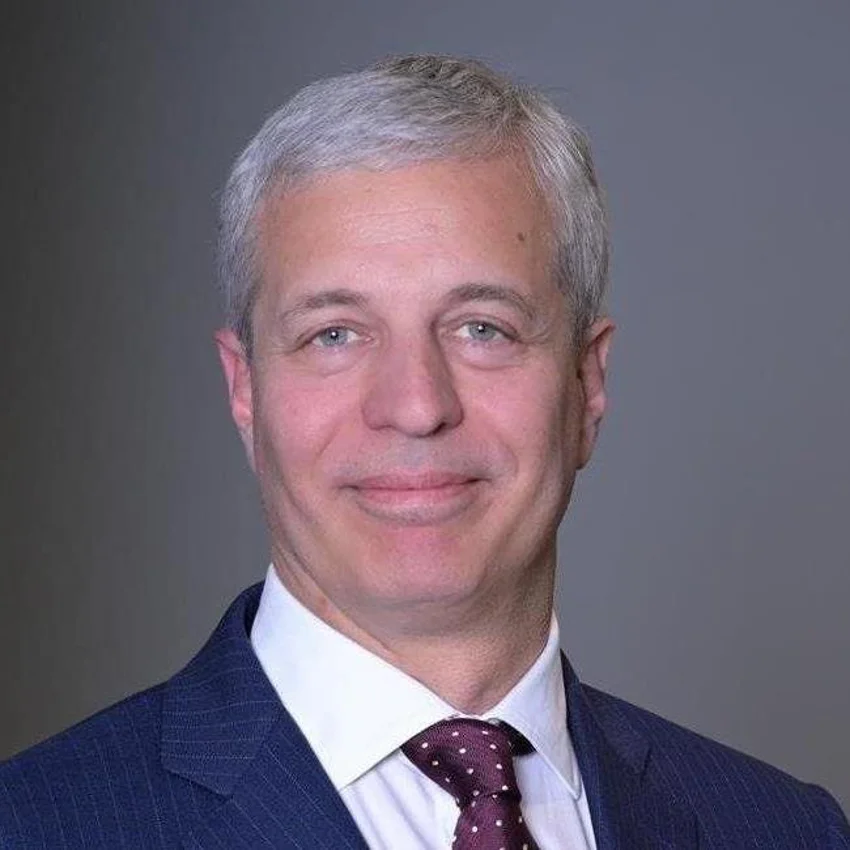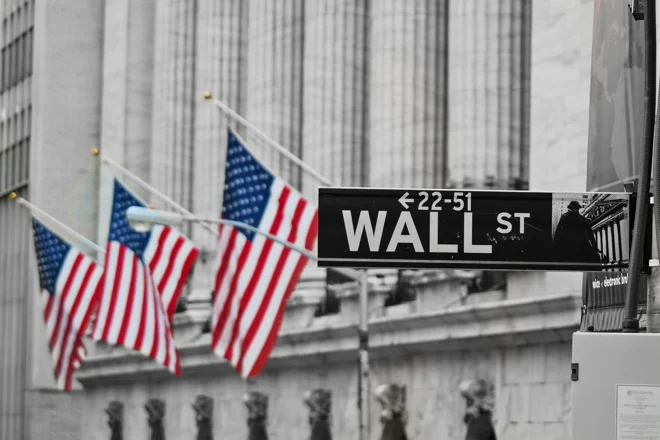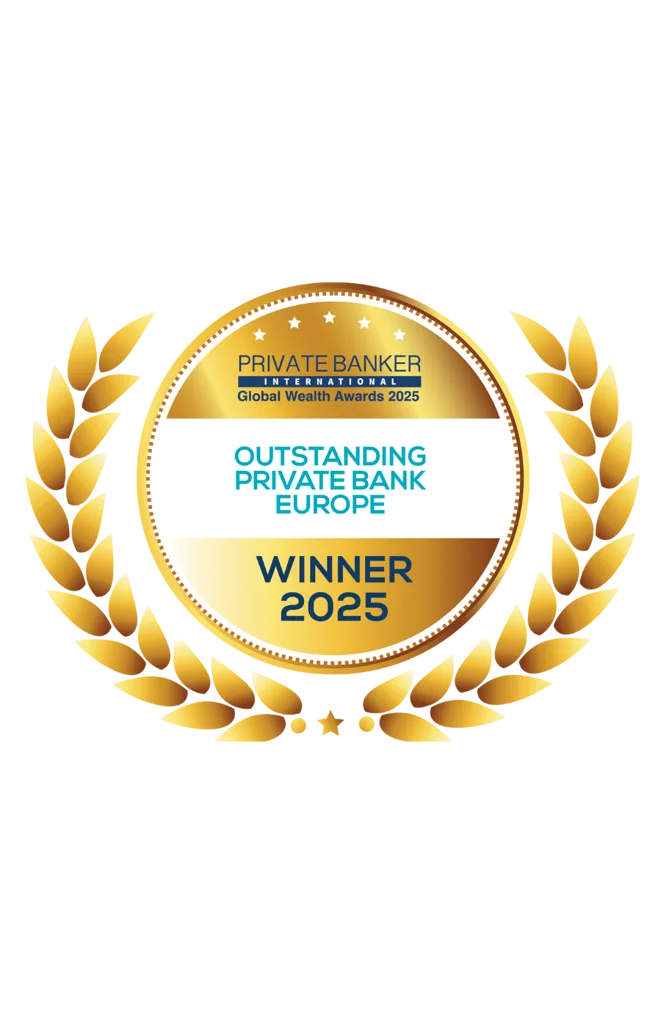Daniele, what is your main role at Quintet?
As Chief Investment Officer, I oversee the upstream segment of our investment strategy, which involves investment research and formulating key views to inform and shape the strategy. The downstream segment is about constructing portfolios in line with our strategy and populating them with financial instruments.
Specifically, my role entails managing the research team and developing our House View, which puts together our analyses on a range of economic and market scenarios. Together with our network of chief strategists, which I coordinate, I also communicate this view, both internally and externally, to client advisors, our senior stakeholders within the firm and, of course, clients, prospects and the media.
Fundamentally, what I do is make sense of multiple perspectives and connect them into a coherent House View that feeds into our investment strategy. In turn, the House View becomes a critical input into portfolios that can be shared within our organization and with our clients. This process heavily relies on data analysis involving numbers, calculations and quantitative techniques.
My role also involves constant engagement with key stakeholders, policymakers, industry leaders, and investors within Luxembourg, London and all the other markets where we operate, including those that can impact our strategy. These exchanges are vital for gaining a comprehensive understanding of the prevailing investment views, allowing us to compare these perspectives with our own, identifying areas of alignment and potential divergence.

Daniele Antonucci
Co-Head of Investment & Chief Investment OfficerHow do you translate those views into a language that is understood by your clients?
It’s crucial to keep in mind the diverse nature of our audience, which comprises client advisors, end clients and portfolio managers.
Our client advisors maintain regular contact with clients and provide holistic advice while possessing a strong grasp of finance and investment concepts. Along with other members of my team, I typically interact with client advisors via weekly calls and on a one-to-one, ad-hoc basis.
In addition, we directly engage with end clients, often via roadshows and events. These clients possess different levels of financial knowledge and expectations. Private investors represent the majority of our clients, but we also cater to professional clients and external asset managers.
Within the wider investment team, of course, our research experts interact with portfolio managers, who are professional investors with sophisticated market knowledge.
To effectively communicate with such a diverse audience, we use a versatile toolkit and different types of publications, each with its own distinct distribution channel. On the one hand, we use technical market language when interacting with professionals. On the other hand, we adopt a more conversational approach when engaging with individual clients, aiding them to understand the complexities of market dynamics and potentially market-moving events, from monetary and fiscal policy to geopolitics.
What is your investment approach?
There’s a lot more to an investment philosophy than just broad principles, from clearly defined pillars to a rather extensive operationalization of those pillars. Broadly speaking, though, I would highlight three fundamental principles.
Firstly, we have a global perspective, focused on capturing opportunities while mitigating risks across key geographies and asset classes. Portfolio diversification is one of the most effective long-term strategies in dealing with uncertainty. Diversifying means exposing portfolios to a diverse range of assets that perform differently in different scenarios. This helps balance investments that could occasionally perform poorly with those doing better so that local events could have less impact.
Secondly, we are active managers, and so we act with conviction but also with moderation. This means that ongoing monitoring of investment decisions and rationales is essential to ensure that we meet our clients’ investment objectives. While tilting portfolios based on shorter-term convictions can be beneficial, we don’t overreact to every headline and overhaul portfolios continuously. That would create costly and unnecessary turnover and prevent the compounding of reinvested earnings, potentially failing to protect portfolios from inflation.
Thirdly, we have an open-architecture orientation. Rather than manufacturing products ourselves and restricting our offering to just those products, we access what we believe to be the most effective products and solutions across the industry. This ensures unbiased recommendations to our clients and the construction of portfolios that best suit our clients’ needs, selecting what we consider to be the top-performing and most cost-effective instruments.
How big is your team, and what expertise do they bring to your investment mission and vision?
Our wider investment team is made up of approximately 40 to 50 individuals. About half of the team specializes in investment research and strategy, with access to a wide range of data, information, and analyses from many providers. The other half or so focuses on portfolio management, from construction to risk management.
The research arm operates via 4-5 specialized teams directly reporting to me. Within that, we have chief strategists stationed in several of our locations. Their role involves formulating a comprehensive view on the economy, financial markets and key themes, providing strategic input into the investment process, and presenting to client advisors, end clients, prospects and the media.
Moreover, our team includes asset class experts across equities and fixed income, along with instrument selection professionals with expertise in funds and alternative investments. There is a strong collaboration with the investment communications team as well to generate engaging content for different audiences, as I explained earlier.
Finally, we recently launched two key partnerships to access extra capabilities as an extension of our own capabilities. The first one is with BlackRock, the largest asset manager in the world. Through this partnership, we’ve gained access to an expanded set of investment tools, products, risk-management solutions, and technologies, while retaining full control of the investment decision-making process. The second one is with Moonfare, which extends the private-market investment opportunities we can offer to appropriate clients.
Luxembourg held the Bloomberg Investment Summit 2023. How important is it for the country and for Quintet?
Luxembourg serves as a significant hub for investment funds, wealth and asset managers, private banking, along with several other parts of the financial and banking industry. It has a leading position in some of these areas, competing across Europe and more widely.
The Bloomberg Investment Summit, a prominent event held in Luxembourg, stands out as a pivotal forum. Attending it provided an invaluable opportunity to engage with a diverse array of professionals, including investors, portfolio managers, strategists, economists, and chief investment officers, fostering discussions on global affairs and the evolution of financial markets. Joining the panel discussion on “Unpacking Geopolitical Risk in the Race for Returns” was a particularly insightful experience, further enriching the exchange of ideas and perspectives among industry peers.
Among the topics we discussed, an interesting one was aversion to uncertainty, a common human trait. We tend to feel uncomfortable when we are unable to predict future outcomes with a sufficient degree of reliability. In both personal and market settings, reactions to relatively common events can vary significantly. Events such as the Bloomberg Investment Summit or the other conferences I join elsewhere in Europe provide a platform for sharing perspectives and analyzing points of view.
Observing why and how individuals over- or underreact to market events can offer valuable insights into effective investment strategies. A quote that strongly resonates with me is: “Plans are useless, but planning is essential.” Our mission is to guide our clients in assessing market events with as much impartiality as possible to make sound long-term decisions.
What is a good investment strategy?
At the start of this interview, I said that a good investment strategy allows compound investing to work over time. Compound investing is when one reinvests the returns of investments rather than banking the income. Any growth could multiply; small amounts of money could grow into larger amounts over time.
Compounding works best when one avoids overreacting to short-term market movements and leaves money invested. This is because any increases build upon themselves over the long term.
The use of compounding is why our investment strategy’s biggest engine of return is our long-term asset allocation, which remains invested for the long term.
Additionally, I highlighted that we adjust our portfolio positioning according to our near-term beliefs, supported by thorough research. We’re also cautious about concentrating all investments in one area. In other words, we’re cautious about putting all eggs in one basket. Doing so could result in large losses if the investment thesis didn’t play out as expected. On the other hand, by diversifying portfolios and spreading investments, basically placing the eggs in different baskets, the potential for substantial gains may be reduced, but so is the likelihood of significant losses.
Discover more insights beyond markets
Important Legal Information
This document is designed as marketing material. This document has been composed by Quintet Private Bank (Europe) S.A., a public limited liability company (société anonyme) incorporated under the laws of the Grand Duchy of Luxembourg, registered with the Luxembourg trade and company register under number B 6.395 and having its registered office at 43, Boulevard Royal, L-2955 Luxembourg (“Quintet”). Quintet is supervised by the CSSF (Commission de Surveillance du Secteur Financier) and the ECB (European Central Bank).
This document is for information purposes only, does not constitute individual (investment or tax) advise and investment decisions must not be based merely on this document. Whenever this document mentions a product, service or advice, it should be considered only as an indication or summary and cannot be seen as complete or fully accurate. All (investment or tax) decisions based on this information are for your own expense and for your own risk. You should (have) assess(ed) whether the product or service is suitable for your situation. Quintet and its employees cannot be held liable for any loss or damage arising out of the use of (any part of) this document.
The information included is subject to change and Quintet has no obligation after the date of publication of the text to update or inform the information accordingly.
This is a non-independent research and it has not been prepared in accordance with legal requirements designed to promote the independence of investment research, and that it is not subject to any prohibition on dealing ahead of the dissemination of investment research.
All copyrights and trademarks regarding this document are held by Quintet, unless expressly stated otherwise. You are not allowed to copy, duplicate in any form or redistribute or use in any way the contents of this document, completely or partially, without the prior explicit and written approval of Quintet. See the privacy notice on our website for how your personal data is used (https://www.quintet.com/en-gb/gdpr).











